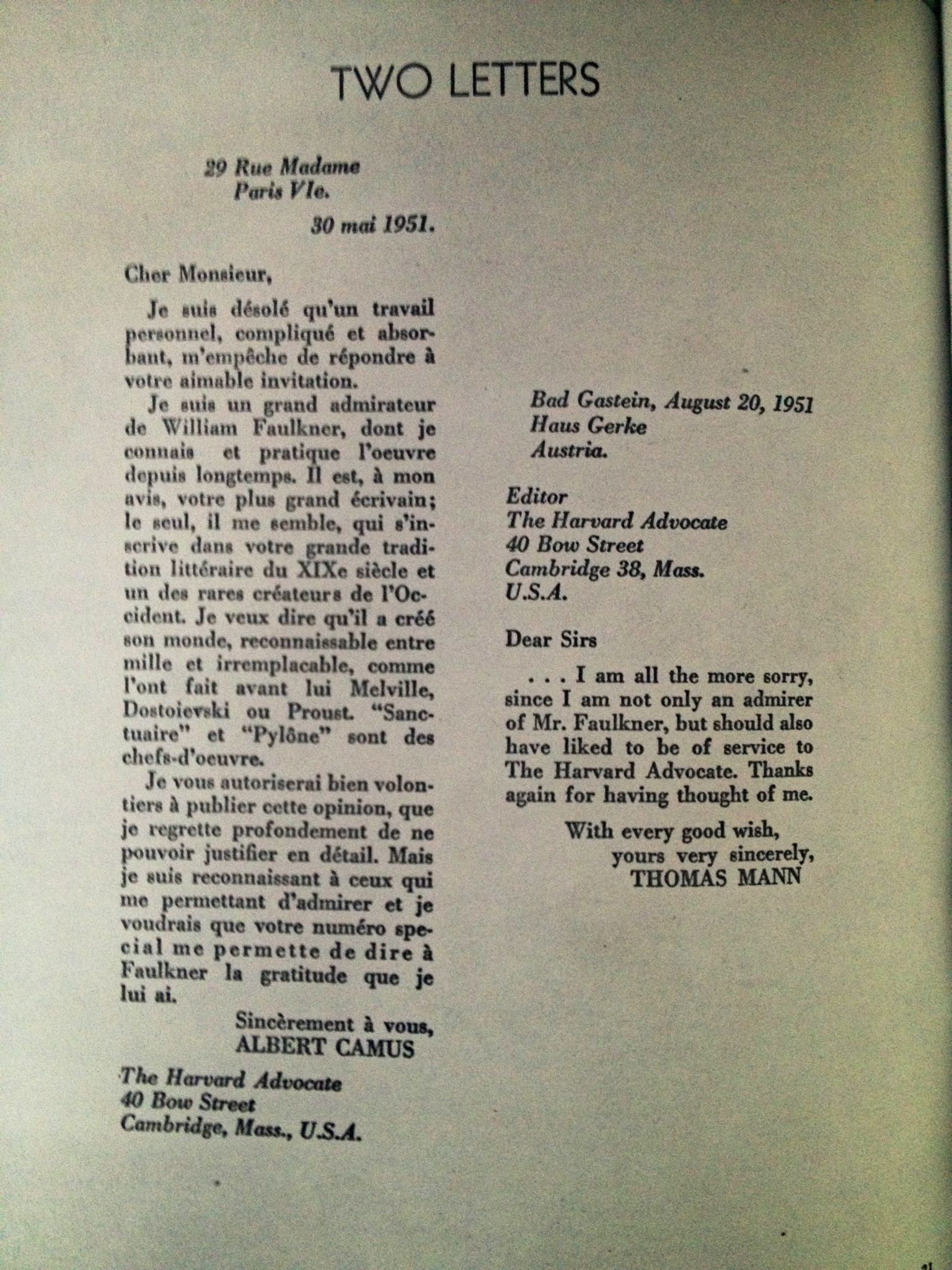The November 1951 issue of The Harvard Advocate addressed a single theme: William Faulkner. Reviews, essays, and excerpts from dissertations crowded the now-yellowed pages of the magazine, tackling everything from the author’s novels to his childhood. Two names in particular jump out from the list of contributors: Albert Camus and Thomas Mann. The Advocate editors were eager to milk this literary windfall, placing their names in bold print on the cover of the issue, and noting their “gracious acknowledgment” to contributors including Camus and Mann “for making this issue possible.” In the Contributors’ Notes, the two are described as follows:
“ALBERT CAMUS, possibly France’s leading contemporary novelist, has seen his novel The Plague translated into nearly every modern language. A critic as well as a novelist, M. Camus has read widely in American fiction.
“THOMAS MANN is perhaps the most distinguished living novelist of the twentieth century, and his fictional and critical works need doubtless no introduction.”
Flipping to their designated pages, however, yields an unexpected result. The “Two Letters” are certainly written by Camus and Mann; both letters, however, express regret that they are not able to contribute to the Advocate’s issue on William Faulkner. Misleading ploy or collegiate prank? Regardless, the publicity stunt was successful for this reader at least.

The text of Camus’s letter, written originally in French, is translated below:
Dear Sir,
I am sorry that a personal matter, complex and absorbing, prevents me from accepting your kind invitation.
I am a great admirer of William Faulkner, whose work I have known and applied for a long while. He is, I believe, your greatest writer; the only one, it seems to me, who can be inscribed in your grand 19th-century literary tradition, and one of West’s rare inventors. I mean that he invented his own world, recognizable among a thousand and irreplaceable, just as Melville, Dostoyevsky, or Proust did before him. “Sanctuary” and “Pylon” are masterpieces.
I shall quite willingly authorize you to publish this opinion, which I profoundly regret not being able to justify in detail. But I am grateful to those who allow me to admire and I would like your special edition to permit me to tell Faulkner the gratitude that I have for him.
Sincerely,
ALBERT CAMUS
Volume CXXXV November 1951 no. 2
